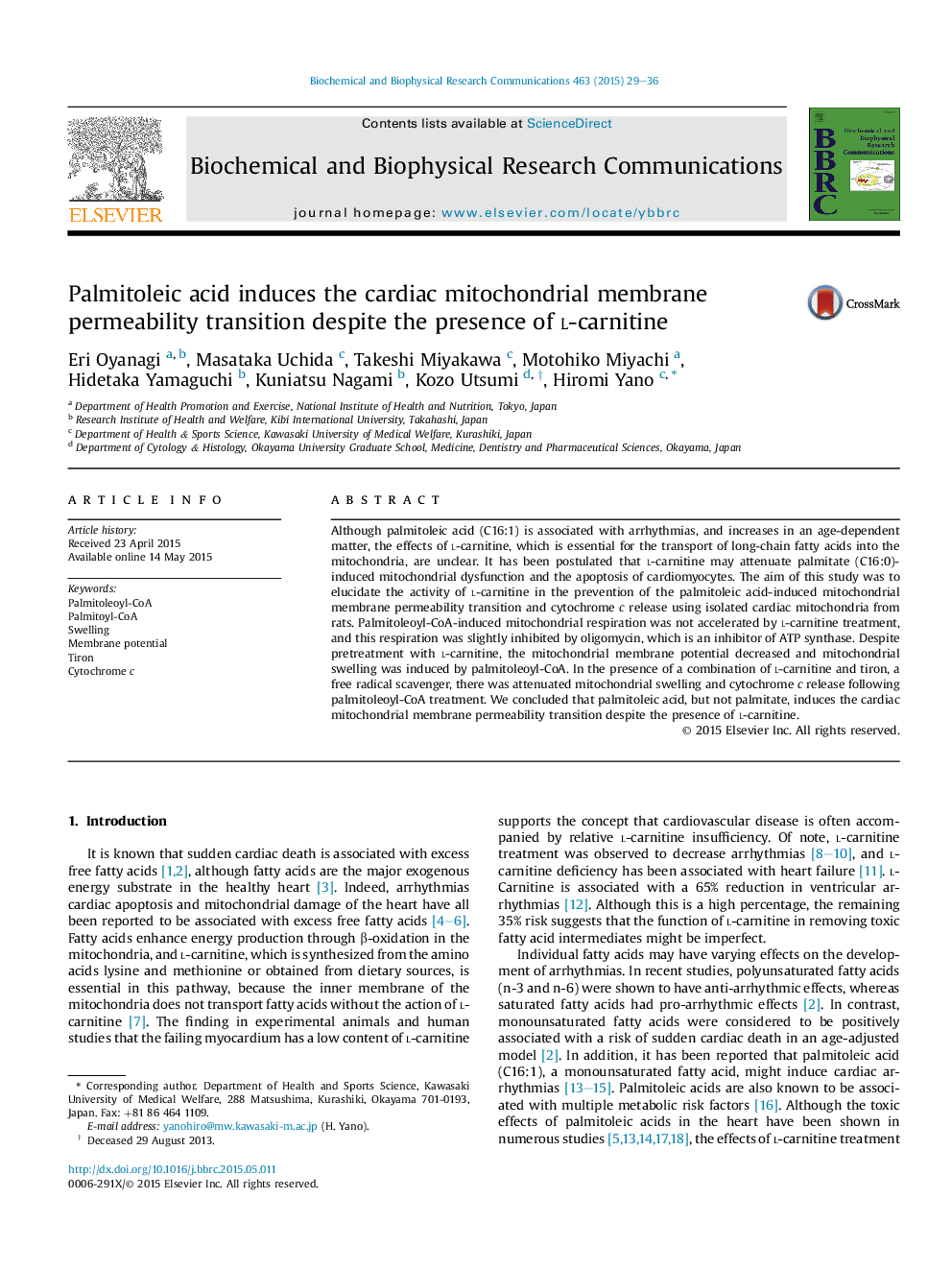| Article ID | Journal | Published Year | Pages | File Type |
|---|---|---|---|---|
| 1927976 | Biochemical and Biophysical Research Communications | 2015 | 8 Pages |
•l-Carnitine did not accelerate palmitoleic acid-induced mitochondrial respiration.•Palmitoleic acid induced membrane permeability transition of cardiac mitochondria.•l-Carnitine did not prevent mitochondrial membrane permeability transition.•A free radical scavenger inhibited mitochondrial swelling and cytochrome c release.
Although palmitoleic acid (C16:1) is associated with arrhythmias, and increases in an age-dependent matter, the effects of l-carnitine, which is essential for the transport of long-chain fatty acids into the mitochondria, are unclear. It has been postulated that l-carnitine may attenuate palmitate (C16:0)-induced mitochondrial dysfunction and the apoptosis of cardiomyocytes. The aim of this study was to elucidate the activity of l-carnitine in the prevention of the palmitoleic acid-induced mitochondrial membrane permeability transition and cytochrome c release using isolated cardiac mitochondria from rats. Palmitoleoyl-CoA-induced mitochondrial respiration was not accelerated by l-carnitine treatment, and this respiration was slightly inhibited by oligomycin, which is an inhibitor of ATP synthase. Despite pretreatment with l-carnitine, the mitochondrial membrane potential decreased and mitochondrial swelling was induced by palmitoleoyl-CoA. In the presence of a combination of l-carnitine and tiron, a free radical scavenger, there was attenuated mitochondrial swelling and cytochrome c release following palmitoleoyl-CoA treatment. We concluded that palmitoleic acid, but not palmitate, induces the cardiac mitochondrial membrane permeability transition despite the presence of l-carnitine.
